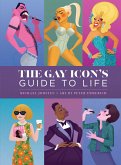In "The Second Generation," David Graham Phillips deftly explores the intricate dynamics of a post-Civil War America marked by rapid social change and economic upheaval. This novel is steeped in the naturalist literary style, reflecting the complexities of human behavior and societal pressures. Phillips intricately weaves themes of ambition, morality, and the pursuit of the American Dream, drawing upon a vivid and realistic portrayal of early 20th-century life that reflects the influences of contemporaneous literary movements, as well as his own keen observations of society's evolving landscape. David Graham Phillips, an influential journalist and novelist, was an early advocate for social reform and women's rights, prompting him to convey the struggles of his characters with empathy and urgency. His extensive reporting exposed societal injustices, which he skillfully translated into narrative form within "The Second Generation." Phillips'Äôs experiences in the newspaper realm also equipped him with incisive insights into the complexities of American life, making this novel not only a literary work but a social critique of his time. This compelling narrative offers readers a profound examination of personal and societal transformations in a rapidly changing America. I highly recommend "The Second Generation" to those who appreciate a well-crafted story that is both engaging and thought-provoking, as it remains relevant in today's discussion of America's evolving identity.
Dieser Download kann aus rechtlichen Gründen nur mit Rechnungsadresse in A, B, BG, CY, CZ, D, DK, EW, E, FIN, F, GR, H, IRL, I, LT, L, LR, M, NL, PL, P, R, S, SLO, SK ausgeliefert werden.









